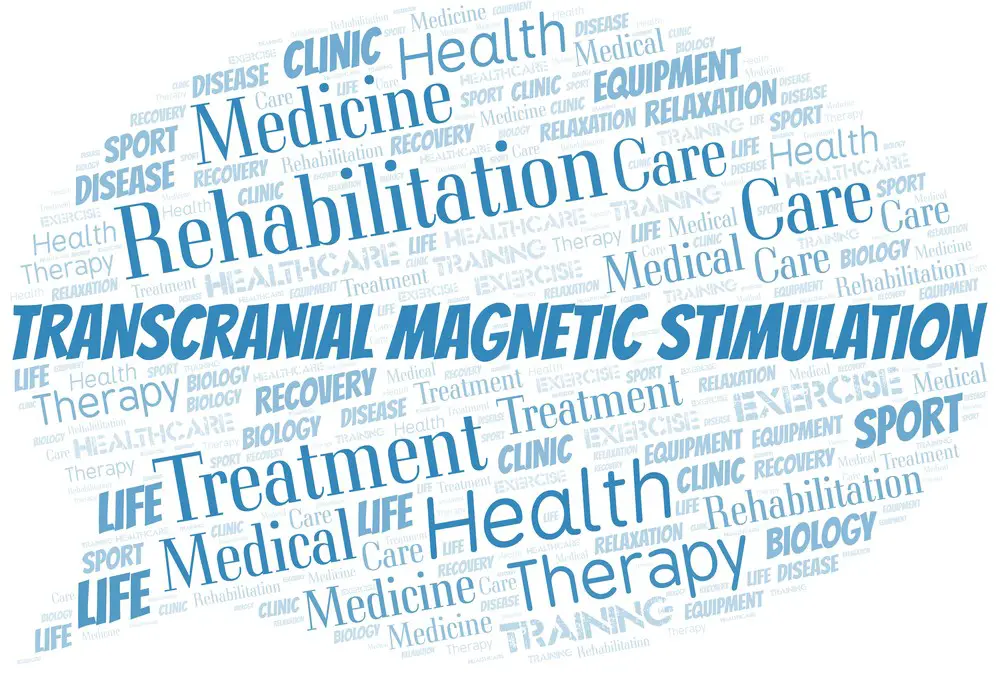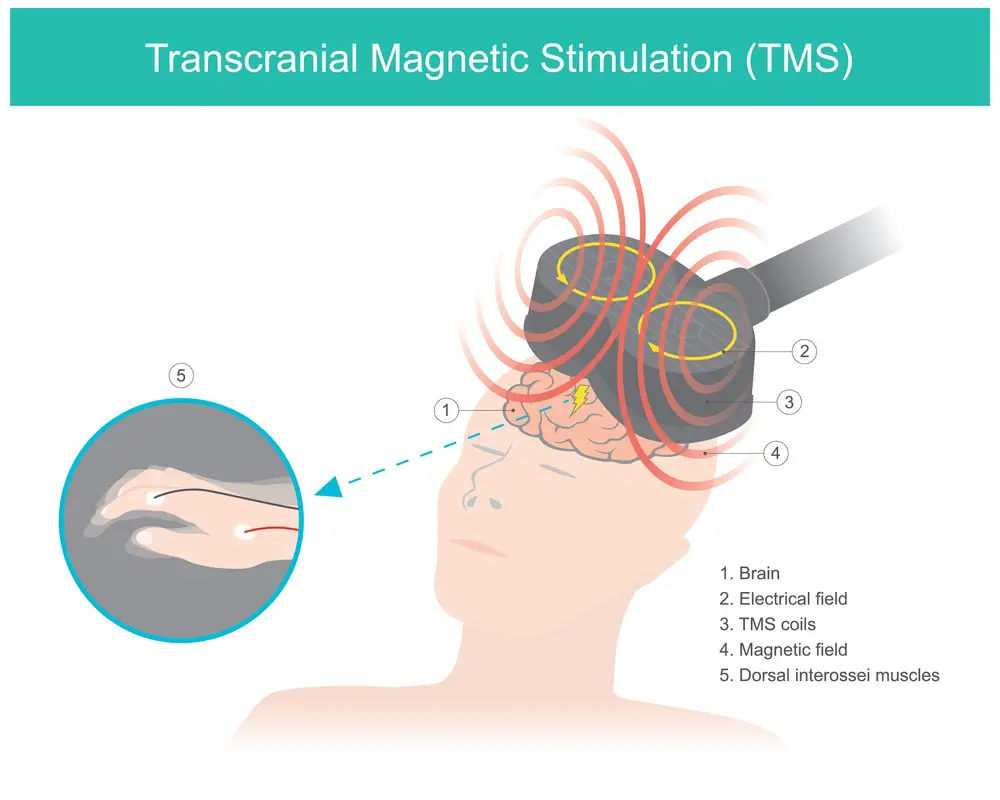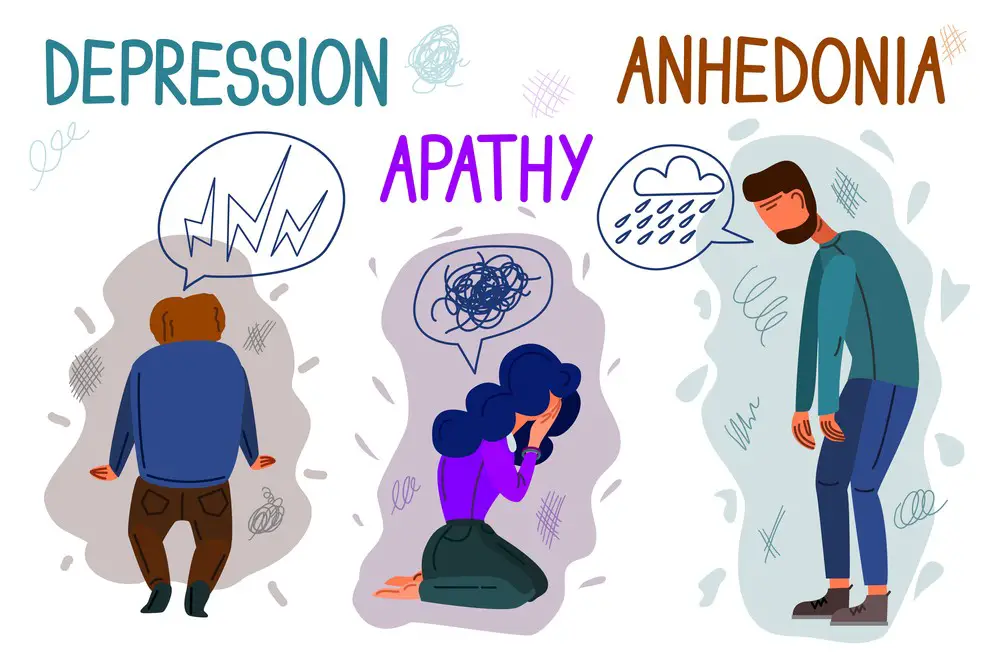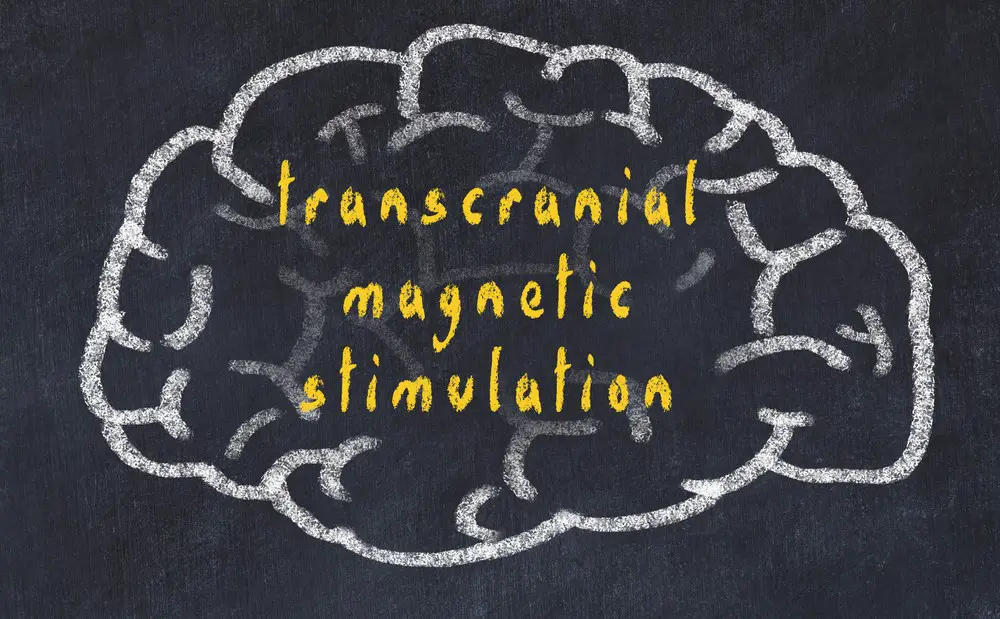Transcranial Magnetic Stimulation (TMS) has emerged as an innovative treatment option for individuals suffering from various mental health disorders, including depression. By using magnetic fields to stimulate underactive brain regions, this non-invasive procedure has relieved some patients who have not responded well to traditional therapies such as medication or psychotherapy.
However, adverse effects or unanticipated outcomes are possible, as with any medical intervention. In the case of TMS, one concern raised is whether the treatment could exacerbate existing depression symptoms in some patients. This has led researchers to investigate the factors that could lead to adverse outcomes, seeking to mitigate risks and ensure that TMS remains a safe and effective option for those in need.
Key Takeaways
- TMS is a non-invasive treatment for depression using magnetic fields to stimulate brain activity
- Some concerns exist regarding whether TMS could worsen depression symptoms in some instances.
- Ongoing research aims to minimize risks and ensure the safety and effectiveness of TMS.

Transcranial Magnetic Stimulation (TMS) and Its Uses
Transcranial magnetic stimulation (TMS) is a recently popular non-invasive treatment method. It treats various neurological and psychiatric disorders, most notably depression. The therapy involves applying electromagnetic pulses to specific brain areas, stimulating neurons, and modulating neurotransmitters.
TMS is an outpatient procedure that offers an effective and safe alternative to more invasive treatments. It is usually administered using repetitive TMS (rTMS), which involves delivering a series of magnetic pulses in a predetermined pattern, targeting specific brain regions associated with the treated condition.
One of the benefits of TMS therapy is that it helps regulate brain activity without needing medications or surgery. Over time, the treatment aims to improve the functioning of the brain’s neurotransmitters, which are responsible for regulating mood, motivation, and other cognitive functions.
The motor threshold is an essential parameter in TMS treatment, as it determines the intensity of the magnetic pulses applied to the brain. It is the lowest energy level needed to stimulate a response from the patient’s muscles. This individualized approach ensures the therapy is tailored to each patient’s needs.
During the TMS procedure, patients are usually awake and can resume their daily activities shortly after the session. The treatment generally does not cause severe side effects, and most TMS patients report only mild discomfort during the sessions. The therapy typically involves multiple sessions, often over several weeks, to achieve the desired results.
In summary, transcranial magnetic stimulation is a promising, noninvasive therapy effective in treating various brain-related disorders, especially depression. Its outpatient nature and minimal side effects make it an attractive option for patients and healthcare providers.
TMS as a Treatment for Depression
Transcranial Magnetic Stimulation (TMS) is a non-invasive therapy for depression. It involves using electromagnetic coils placed on the patient’s scalp to deliver magnetic pulses to specific areas of the brain known to be associated with mood regulation.
TMS is considered an effective treatment option for those suffering from treatment-resistant depression. This refers to cases where patients have not found relief from their depressive symptoms after trying multiple antidepressant medications or other forms of therapy.
The primary goal of TMS in treating depression is to stimulate neural activity in the targeted brain regions, which can lead to improvements in mood and functioning. Multiple sessions are typically required, with four to six weeks of treatments.
Clinical studies have shown that many patients with severe depression experience remission after undergoing TMS therapy. Sometimes, the results can be long-lasting, reducing the need for ongoing medication.
In summary, TMS is a valuable treatment option for individuals who have not found relief from depression using other methods. By targeting specific areas of the brain responsible for mood regulation, TMS can potentially alleviate symptoms of depression, particularly in cases of treatment-resistant depression.

Possible Side Effects of TMS
TMS (Transcranial Magnetic Stimulation) is a non-invasive treatment for depression that uses magnetic pulses to stimulate specific regions in the brain. While TMS is generally considered a safe treatment option with minimal side effects, some individuals may experience discomfort or adverse reactions.
One of the common side effects experienced by patients undergoing TMS therapy is headaches. These are usually mild and diminish over time as the patient’s body adjusts to the treatment. Over-the-counter pain relievers can often help alleviate this discomfort.
Another possible side effect is lightheadedness, which may occur during or immediately after a TMS session. This sensation is typically brief and resolves on its own shortly after treatment.
In rare cases, TMS has been linked to seizures. The risk of seizure is low, but patients with a history of epilepsy or other seizure disorders should discuss this risk with their healthcare provider before considering TMS therapy.
Some patients may experience a temporary dip in mood following TMS treatment. This short-term fluctuation is generally not a cause for concern and usually resolves within a day or two.
While TMS is generally not associated with long-term memory loss, short-term memory disturbances or difficulties with concentration can sometimes occur during treatment. These cognitive effects are typically mild and improve as the therapy progresses.
Some individuals could experience a tingling sensation or facial twitching during TMS sessions. These sensations are caused by stimulation of the nerves in the scalp and face and should subside once the treatment is completed.
It is important to note that not all patients will experience these side effects, and many people tolerate TMS therapy well. If any side effects become severe or persistent, patients are encouraged to discuss their concerns with their healthcare provider to determine the most appropriate action.
Safety and Effectiveness of TMS
Transcranial Magnetic Stimulation (TMS) is a non-invasive procedure that utilizes a magnetic coil to stimulate specific areas of the brain and has been proven to be a safe and effective treatment option for various mental health conditions, including depression and obsessive-compulsive disorder (OCD). The FDA has approved TMS as a secure treatment method with minimal risks and side effects.
One of the primary concerns regarding TMS treatment is the potential for memory loss. However, clinical studies have consistently shown that TMS does not significantly impact patients’ memory function. Memory performance has been observed to improve in some cases following TMS treatment.
There are certain risks associated with TMS that must be considered. Patients with metal implants, shrapnel, or tattoos near the treatment area may be ineligible for TMS due to the magnetic field generated by the coil. Additionally, those with stents, deep brain stimulators, or metallic fillings may experience complications due to the magnetic field.
Healthcare professionals are responsible for determining specific contraindications and ensuring patient safety during TMS treatments. Proper ear protection, such as earplugs, should be provided to minimize any potential auditory side effects.
Although TMS is safe and effective, it may pose increased risks for certain individuals. Those with a history of epilepsy or seizures should approach TMS cautiously, as it can potentially trigger these symptoms. Similarly, TMS may exacerbate symptoms in individuals with bipolar disorder, leading to mania or rapid cycling between mania and depression.
Despite these risks, TMS is a successful treatment option for many patients. Clinical studies demonstrate that TMS can lead to remission of depressive symptoms in some cases and has also shown promising results in treating OCD.
In summary, TMS is a safe and effective treatment for various mental health conditions, with minimal side effects and risks. While certain patient groups should approach TMS cautiously, it has proven valuable for those seeking non-invasive treatments for depression and other disorders.
TMS and Other Alternative Therapies
Transcranial Magnetic Stimulation (TMS) is a non-invasive technique used to treat depression by stimulating specific brain regions with magnetic pulses. Though it has shown promise in some instances, some individuals question whether TMS can potentially make depression worse.
When considering alternative therapies for depression, weighing the risks and benefits of each option is crucial. Conventional treatments for depression typically include a combination of psychotherapy and antidepressant medications. These therapies have been extensively studied, demonstrating effectiveness for many patients. However, not everyone responds well to these standard treatment approaches, leading some to explore alternative therapies such as TMS.
While TMS could be a useful alternative for individuals who cannot tolerate or do not respond to traditional antidepressant medications and psychotherapy, it’s essential to recognize that individual responses to TMS can vary. Some individuals have reported experiencing a worsening of their depressive symptoms after TMS treatment. This outcome may be attributable to various factors, such as improper targeting of brain regions or incorrect treatment parameters.
When comparing TMS to other alternative therapies, it’s essential to consider factors such as treatment effectiveness, side effects, and accessibility. Some people might turn to complementary and alternative medicine (CAM) options, such as acupuncture, herbal supplements, and yoga, to manage their depression. These approaches can be helpful for some individuals, but it is essential to recognize that they might not have the same extensive research supporting their effectiveness as conventional therapies.
Before deciding on TMS as a treatment option, it is crucial to consult a mental health professional knowledgeable about the therapy’s potential benefits and drawbacks. They can help determine whether TMS is a suitable alternative to traditional antidepressants or psychotherapy based on an individual’s specific circumstances and treatment history. It’s also essential to monitor symptoms closely during and after TMS treatments to track progress and ensure the therapy is beneficial, not worsening the depressive symptoms.
Advanced Insights from TMS
Transcranial magnetic stimulation (TMS) is a noninvasive outpatient procedure that uses magnetic fields to produce electromagnetic pulses, regulating neural activity in the brain. This method modulates energy in targeted regions, such as the dorsolateral prefrontal cortex, which is crucial in managing mood disorders.
The Food and Drug Administration has approved TMS to treat major depressive disorder, obsessive-compulsive disorder (OCD), and chronic pain. The treatment involves placing an electromagnetic coil near the patient’s scalp to deliver magnetic pulses to the prefrontal cortex. It is worth noting that this therapy may not be suitable for individuals with facial tattoos, as it can cause an uncomfortable sensation.
Evidence shows that TMS can benefit various mental health disorders, including general anxiety disorder and OCD. However, some patients might experience a temporary dip in their mood, also known as a TMS dip. This side effect is generally short-lived and should not deter individuals from pursuing the treatment.
While TMS is generally considered safe and noninvasive, it is essential to remember that its effectiveness and potential risks may vary among individuals. Some studies have shown that TMS can increase anxiety levels in a subset of patients, but this occurrence is relatively rare. Further research is needed to understand the specific factors contributing to such a response.
In conclusion, TMS is a promising treatment option for multiple mental health disorders. The therapy employs magnetic pulses to target the prefrontal cortex to reset and potentially improve neural activity. While TMS treatment may cause a temporary mood dip for some patients, its overall safety and efficacy make it a valuable option for those struggling with various mental health challenges.

Conclusion
TMS (Transcranial Magnetic Stimulation) is an effective treatment for depression, but the possibility of it potentially worsening depression cannot be ignored. Research indicates that while TMS has helped many individuals, some cases have experienced increased depressive symptoms.
Initial studies and clinical trials have displayed the benefits of TMS, as some patients demonstrate a reduction in symptom severity and an improvement in overall functioning. The effectiveness of TMS relies on the precise targeting of certain areas in the brain and the application of accurate stimulation intensities.
However, the brain is a complex organ, and TMS has the potential to inadvertently affect other neural pathways or disrupt the balance of neurotransmitters, leading to increased depressive symptoms. As with any medical intervention, individual responses to treatment may vary.
Additionally, TMS may not be suitable for all patients, and individuals with specific medical conditions or a history of seizures may be at a higher risk for complications. Patients need to consult their healthcare provider and discuss any potential risks and benefits before undertaking TMS as a form of treatment.
In conclusion, while TMS has successfully treated depression for many individuals, care should be taken in monitoring treatment progress and adjusting parameters as needed to minimize any adverse effects. Further research is required to understand the full spectrum of outcomes and identify subsets of patients who may be at risk for worsening depression with TMS treatment.
Frequently Asked Questions
Does TMS have any side effects?
Transcranial magnetic stimulation (TMS) is generally considered a safe treatment for depression. However, some patients may experience mild to moderate side effects, such as headache, scalp discomfort, lightheadedness, and temporary hearing changes. These side effects usually diminish over time and can be managed with over-the-counter pain relievers.
Can TMS exacerbate existing depression?
In rare cases, TMS may temporarily intensify depression symptoms. It is important to monitor mood changes and communicate with your treatment provider to adjust treatment settings if necessary. Most patients experience improvement in their depressive symptoms throughout their TMS treatment.
What are the risks associated with TMS?
The most significant risk associated with TMS is the possibility of inducing a seizure. However, this risk is small, and seizures are extremely rare during TMS treatment. Other potential risks include the previously mentioned side effects and the possibility of transient cognitive changes. However, TMS is generally considered a safe and well-tolerated treatment option for depression.
Is it possible for TMS to be counterproductive in treating depression?
Although TMS is an effective treatment for many patients with depression, it may not work for everyone. Some individuals may not respond to TMS, or their depression symptoms could return after treatment completion. Discussing all treatment options with a healthcare professional to determine the best course of action for each case is essential.
How does TMS affect the severity of symptoms?
TMS uses electromagnetic pulses to stimulate specific areas of the brain associated with depression. Most patients report a reduction in the severity of their depressive symptoms during and after their TMS treatment course. The magnitude of symptom reduction varies between individuals, and some patients may require additional treatment or maintenance sessions.
Are there any cases of TMS worsening mental health?
Although rare, there have been anecdotal reports of TMS exacerbating mental health symptoms in some individuals. However, these cases are typically outliers, and most patients experience improvements in their depressive symptoms. Communication with a healthcare provider is crucial during TMS treatment to monitor and address any concerns or changes in symptoms.
- The Burnout Epidemic: Why We’re All Feeling Overwhelmed and How to Cope - February 9, 2024
- How to Live a Peaceful Life - February 9, 2024
- Useful Information You Should Know About Health Screenings - February 8, 2024
This site contains affiliate links to products. We will receive a commission for purchases made through these links.




